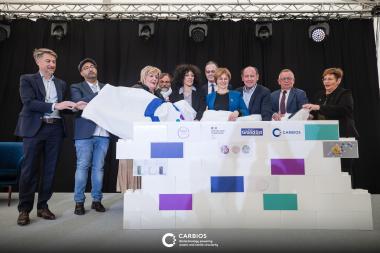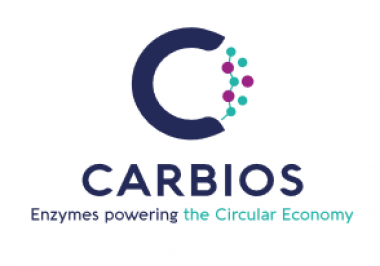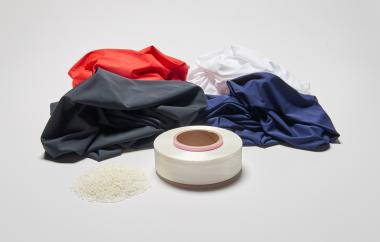CARBIOS: Groundbreaking of PET biorecycling plant
CARBIOS celebrated the groundbreaking ceremony for its PET biorecycling plant in the presence of representatives of local authorities, partner brands and industrial partners who all make up CARBIOS’ ecosystem. Located in Longlaville, in the Grand-Est region of France, CARBIOS' first commercial plant will play a key role in the fight against plastic pollution, offering an industrial-scale solution for the enzymatic depolymerization of PET waste in order to accelerate a circular economy for plastic and textiles. The plant will have a processing capacity of 50kt/year of prepared waste when operating at full capacity. Work is progressing on schedule with significant quantities delivered to customers in 2026.
CARBIOS' technology enables PET circularity and provides an alternative raw material to fossil-based monomers, giving PET producers, waste management companies, public bodies and brands an effective solution to meet regulatory requirements and their own commitments to sustainable development. The plant will have the capacity to process 50,000 tons of prepared PET waste per year (equivalent to 2 billion colored bottles, 2.5 billion food trays or 300 million T-shirts). The plant will create 150 direct and indirect jobs in the region. In October 2023, CARBIOS obtained the building and operating permits for the site. The factory is currently under construction on land officially acquired from Indorama Ventures on 14 February 2024. In February 2024, CARBIOS and De Smet Engineers & Contractors (DSEC) announced their collaboration to manage construction. Several feedstock supply agreements, notably with CITEO and Landbell Group, will secure the vast majority of the raw materials required. Close to the borders with Belgium, Germany and Luxembourg, the plant's location is strategic for access to nearby waste supplies
CARBIOS



























